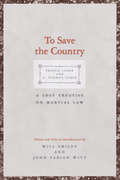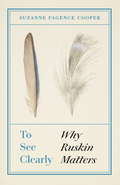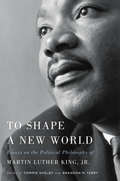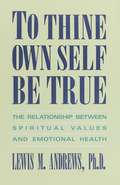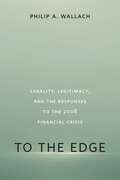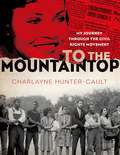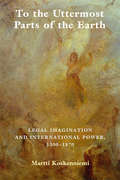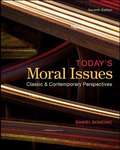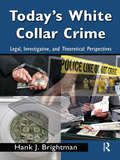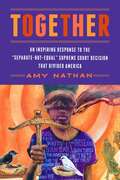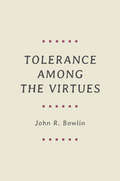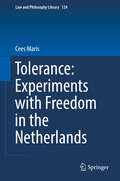- Table View
- List View
To Live For: A Mother's Cry For Justice
by Linda WojasOn March 22, 1991 after a 14-day trial in Rockingham County Superior Court, New Hampshire, my daughter Pamela Smart was wrongfully found guilty in the murder of her husband, Gregory Smart. She was convicted of being an accomplice to first-degree murder, conspiracy to commit murder and witness tampering. Only 22 years old at the time, she was given a life without parole sentence. <p><p>My daughter did not commit these crimes. I'm not saying this because she's my daughter, but there was no credible forensic evidence to prove she had any role in Gregory's murder. This trial spiraled into a media circus and the un-sequestered jury believed all the lies that the local news stations were saying about Pamela's role. Billy Flynn who testified at trial that he physically pulled the trigger, as well as testifying against Pamela at trial, he ended up pleaded guilty to second-degree murder. He was sentenced to 40 years to life, with the option to shave 12 years off if he behaved himself in prison. He was released in 2015. Flynn was 16 when he shot my 24-year-old son-in-law Gregory Smart to death, and accused Pamela of telling him to carry out this heinous act. <p><p>Nicole's Kidman's portrayal of Pamela's life in the cult film "To Die For" is just one example of the way the media has exploited her pain, our family tragedy. I've bottled up my feelings for 30 years now and finally decided to release personal and revealing letters between Pamela and myself, to share with the public so people can see the truth behind all the lies. This is the first journal I am releasing. We have lots more to come. <p><p>I will continue to fight for Pamela's freedom because she's innocent and has so much left of her life to offer society. I want her home before I die and will continue to file petitions to get the executive council of New Hampshire to free Pamela. This is my book. This is our story. This is what I live for.
To Save Heaven and Earth: Rescue in the Rwandan Genocide
by Jennie E. BurnetIn To Save Heaven and Earth, Jennie E. Burnet considers people who risked their lives in the 1994 Rwandan genocide of Tutsi to try and save those targeted for killing. Many genocide perpetrators were not motivated by political ideology, ethnic hatred, or prejudice. By shifting away from these classic typologies of genocide studies and focusing instead on hundreds of thousands of discrete acts that unfold over time, Burnet highlights the ways that complex decisions and behaviors emerge in the social, political, and economic processes that constitute a genocide.To Save Heaven and Earth explores external factors, such as geography, local power dynamics, and genocide timelines, as well as the internal states of mind and motivations of those who effected rescues. Framed within the interdisciplinary scholarship of genocide studies and rooted in cultural anthropology methodologies, this book presents stories of heroism and of the good done amid the evil of a genocide that nearly annihilated Rwandan Tutsi and decimated the Hutu and Twa who were opposed to the slaughter.
To Save the Country: A Lost Treatise on Martial Law (Yale Law Library Series in Legal History and Reference)
by Francis Lieber G. Norman LieberA Civil War-era treatise addressing the power of governments in moments of emergency The last work of Abraham Lincoln’s law of war expert Francis Lieber was long considered lost—until Will Smiley and John Fabian Witt discovered it in the National Archives. Lieber’s manuscript on emergency powers and martial law addresses important contemporary debates in law and political philosophy and stands as a significant historical discovery. As a key legal advisor to the Lincoln White House, Columbia College professor Francis Lieber was one of the architects and defenders of Lincoln’s most famous uses of emergency powers during the Civil War. Lieber’s work laid the foundation for rules now accepted worldwide. In the years after the war, Lieber and his son turned their attention to the question of emergency powers. The Liebers’ treatise addresses a vital question, as prominent since 9/11 as it was in Lieber’s lifetime: how much power should the government have in a crisis? The Liebers present a theory that aims to preserve legal restraint, while giving the executive necessary freedom of action. Smiley and Witt have written a lucid introduction that explains how this manuscript is a key discovery in two ways: both as a historical document and as an important contribution to the current debate over emergency powers in constitutional democracies.
To Secure These Rights: The Declaration of Independence and Constitutional Interpretation
by Scott Douglas GerberA legal scholar puts forward a rigorous and provocative theory of constitutional interpretation that cuts across today&’s partisan divide.To Secure These Rights enters the fascinating—and often contentious—debate over constitutional interpretation. Scott Douglas Gerber argues that the Constitution of the United States should be interpreted in light of the natural rights political philosophy of the Declaration of Independence and that the Supreme Court is the institution of American government that should be primarily responsible for identifying and applying that philosophy in American life. Importantly, the theory advanced in this book—what Gerber calls liberal originalism—is neither consistently liberal nor consistently conservative in the modern conception of those terms. Rather, the theory is liberal in the classic sense of viewing the basic purpose of government to be safeguarding the natural rights of individuals. As Thomas Jefferson wrote in the Declaration of Independence, to secure these rights, governments are instituted among men. In essence, Gerber maintains that the Declaration articulates the philosophical ends of our nation, and that the Constitution embodies the means to effectuate those ends. Gerber's analysis reveals that the Constitution cannot be properly understood without recourse to history, political philosophy, and law.
To See Clearly: Why Ruskin Matters
by Suzanne Fagence Cooper'To see clearly is poetry, prophecy, religion, all in one'John Ruskin - born 200 years ago, in February 1819 - was the greatest critic of his age: a critic not only of art and architecture but of society and life. But his writings - on beauty and truth, on work and leisure, on commerce and capitalism, on life and how to live it - can teach us more than ever about how to see the world around us clearly and how to live it.Dr Suzanne Fagence Cooper delves into Ruskin's writings and uncovers the dizzying beauty and clarity of his vision. Whether he was examining the exquisite carvings of a medieval cathedral or the mass-produced wares of Victorian industry, chronicling the beauties of Venice and Florence or his own descent into old age and infirmity, Ruskin saw vividly the glories and the contradictions of life, and taught us how to see them as well.
To Serve and Protect: Privatization and Community in Criminal Justice
by Bruce L. BensonTraces the accelerating trend towards privatization in the criminal justice systemIn contrast to government's predominant role in criminal justice today, for many centuries crime control was almost entirely private and community-based. Government police forces, prosecutors, courts, and prisons are all recent historical developments–results of a political and bureaucratic social experiment which, Bruce Benson argues, neither protects the innocent nor dispenses justice.In this comprehensive and timely book, Benson analyzes the accelerating trend toward privatization in the criminal justice system. In so doing, To Serve and Protect challenges and transcends both liberal and conservative policies that have supported government's pervasive role. With lucidity and rigor, he examines the gamut of private-sector input to criminal justice–from private-sector outsourcing of prisons and corrections, security, arbitration to full "private justice" such as business and community-imposed sanctions and citizen crime prevention. Searching for the most cost-effective methods of reducing crime and protecting civil liberties, Benson weighs the benefits and liabilities of various levels of privatization, offering correctives for the current gridlock that will make criminal justice truly accountable to the citizenry and will simultaneously result in reductions in the unchecked power of government.
To Serve the Living: Funeral Directors and the African American Way of Death
by Suzanne E. SmithFrom antebellum slavery to the twenty-first century, African American funeral directors have orchestrated funerals or “homegoing” ceremonies with dignity and pageantry. As entrepreneurs in a largely segregated trade, they were among the few black individuals in any community who were economically independent and not beholden to the local white power structure. Most important, their financial freedom gave them the ability to support the struggle for civil rights and, indeed, to serve the living as well as bury the dead. During the Jim Crow era, black funeral directors relied on racial segregation to secure their foothold in America’s capitalist marketplace. With the dawning of the civil rights age, these entrepreneurs were drawn into the movement to integrate American society, but were also uncertain how racial integration would affect their business success. From the beginning, this tension between personal gain and community service shaped the history of African American funeral directing. For African Americans, death was never simply the end of life, and funerals were not just places to mourn. In the “hush harbors” of the slave quarters, African Americans first used funerals to bury their dead and to plan a path to freedom. Similarly, throughout the long—and often violent—struggle for racial equality in the twentieth century, funeral directors aided the cause by honoring the dead while supporting the living. To Serve the Living offers a fascinating history of how African American funeral directors have been integral to the fight for freedom.
To Shape a New World: Essays on the Political Philosophy of Martin Luther King, Jr.
by Tommie ShelbyOn the 50th anniversary of Martin Luther King, Jr.’s, assassination, his political thought remains underappreciated. Tommie Shelby and Brandon Terry, along with a cast of distinguished contributors, engage critically with King’s understudied writings on a wide range of compelling, challenging topics and rethink the legacy of this towering figure.
To Speak as a Judge: Difference, Voice and Power (Routledge Revivals)
by Sandra BernsFirst published in 1999, this volume explores the nature of adjudication in the common law tradition from a feminist postmodernist perspective. The author accepts and celebrates the ‘choices’ open to the judge and argues that without choice, judgment cannot be properly judicial. The first full length feminist exploration of the role of the judge and the nature of law and legality, To Speak as a Judge is grounded in the process of adjudication and its rhetorical nature. It draws upon significant contemporary cases to explore the narrativity of law and the ways in which rhetoric and judicial understandings of the nature of law determine narrative style.
To Steal a Book Is an Elegant Offense: Intellectual Property Law in Chinese Civilization
by William P. AlfordThis study examines the law of intellectual property in China from imperial times to the present. It draws on history, politics, economics, sociology, and the arts, and on interviews with officials, business people, lawyers, and perpetrators and victims of 'piracy'. The author asks why the Chinese, with their early bounty of scientific and artistic creations, are only now devising legal protection for such endeavors and why such protection is more rhetoric than reality on the Chinese mainland. In the process, he sheds light on the complex relation between law and political culture in China. The book goes on to examine recent efforts in the People's Republic of China to develop intellectual property law, and uses this example to highlight the broader problems with China's program of law reform.
To Thine Own Self Be True: The Relationship Between Spiritual Values and Emotional Health
by Lewis M. Andrews"There is a newfound confidence and enthusiasm for living. But perhaps the most remarkable development of all is the recognition that this spiritual therapy is not really a new discovery, revealed by some outside authority, as much as it is a reminder of the basic truths we have always known in our own hearts. In healing ourselves, we learn that the greatest wisdom of all lies not in listening to others but in being true to our deepest selves".
To Whom Do Children Belong?
by Melissa MoschellaMost people believe that parents have rights to direct their children's education and upbringing. But why? What grounds those rights? How broad is their scope? Can we defend parental rights against those who believe we need more extensive state educational control to protect children's autonomy or prepare them for citizenship in a diverse society? Amid heated debates over issues like sexual education, diversity education and vouchers, Moschella cuts to the heart of the matter, explaining why education is primarily the responsibility of parents, not the state. Rigorously argued yet broadly accessible, the book offers a principled case for expanding school choice and granting exemptions when educational programs or regulations threaten parents' ability to raise their children in line with their values. Philosophical argument is complemented with psychological and social scientific research showing that robust parental rights' protections are crucial for the well-being of parents, children and society as a whole.
To the Edge
by Philip A. WallachWere the radical steps taken by the Treasury Department and Federal Reserve to avert the financial crisis legal? When and why did political elites and the general public question the legitimacy of the government's responses to the crisis?In To The Edge: Legality, Legitimacy, and the Responses to the 2008 Financial Crisis, Philip Wallach chronicles and examines the legal and political controversies surrounding the government's responses to the recent financial crisis. The economic devastation left behind is well-known, but some allege that even more lasting harm was inflicted on America's rule of law tradition and government legitimacy by the ambitious attempts to limit the fallout. In probing these claims, Wallach offers a searching inquiry into the meaning of the rule of law during crises.The book provides a detailed analysis of the policies undertaken--from the rescue of Bear Stearns in March 2008 through the tumultuous events of September 2008, the passage of the TARP and its broad usage, the alphabet soup of emergency Federal Reserve programs, the bankruptcies of Chrysler and GM, and the extended public ownership of AIG, Fannie Mae, and Freddie Mac. Throughout, Wallach probes the legal bases of the government's actions and explores why concerns about the legitimacy of government actions were only sporadically grounded in concerns about legality--and sometimes ran directly against them.The public's sense that government officials operated through ad hoc responses that favored powerful interests has helped bring the legitimacy of American governmental institutions to historic lows. Wallach's book recommends constructive and sensible reforms policymakers should take to ensure accountability and legitimacy before the government faces another crisis.
To the Edge
by Philip A. WallachWere the radical steps taken by the Treasury Department and Federal Reserve to avert the financial crisis legal? When and why did political elites and the general public question the legitimacy of the government's responses to the crisis?In To The Edge: Legality, Legitimacy, and the Responses to the 2008 Financial Crisis, Philip Wallach chronicles and examines the legal and political controversies surrounding the government's responses to the recent financial crisis. The economic devastation left behind is well-known, but some allege that even more lasting harm was inflicted on America's rule of law tradition and government legitimacy by the ambitious attempts to limit the fallout. In probing these claims, Wallach offers a searching inquiry into the meaning of the rule of law during crises.The book provides a detailed analysis of the policies undertaken-from the rescue of Bear Stearns in March 2008 through the tumultuous events of September 2008, the passage of the TARP and its broad usage, the alphabet soup of emergency Federal Reserve programs, the bankruptcies of Chrysler and GM, and the extended public ownership of AIG, Fannie Mae, and Freddie Mac. Throughout, Wallach probes the legal bases of the government's actions and explores why concerns about the legitimacy of government actions were only sporadically grounded in concerns about legality-and sometimes ran directly against them.The public's sense that government officials operated through ad hoc responses that favored powerful interests has helped bring the legitimacy of American governmental institutions to historic lows. Wallach's book recommends constructive and sensible reforms policymakers should take to ensure accountability and legitimacy before the government faces another crisis.
To the Mountaintop: My Journey Through the Civil Rights Movement
by Charlayne Hunter-Gault<p>A personal history of the civil rights movement from activist and acclaimed journalist Charlayne Hunter-Gault. <p>On January 20, 2009, 1.8 million people crowded the grounds of the Capitol to witness the inauguration of Barack Obama. Among the masses was Charlayne Hunter-Gault. She had flown from South Africa for the occasion, to witness what was for many the culmination of the long struggle for civil rights in the United States. In this compelling personal history, she uses the event to look back on her own involvement in the civil rights movement, as one of two black students who forced the University of Georgia to integrate, and to relate the pivotal events that swept the South as the movement gathered momentum through the early 1960s. <p>With poignant black-and-white photos, original articles from the New York Times, and a unique personal viewpoint, this is a moving tribute to the men and women on whose shoulders Obama stood.</p>
To the Uttermost Parts of the Earth: Legal Imagination and International Power 1300–1870
by Martti KoskenniemiTo the Uttermost Parts of the Earth shows the vital role played by legal imagination in the formation of the international order during 1300–1870. It discusses how European statehood arose during early modernity as a locally specific combination of ideas about sovereign power and property rights, and how those ideas expanded to structure the formation of European empires and consolidate modern international relations. By connecting the development of legal thinking with the history of political thought and by showing the gradual rise of economic analysis into predominance, the author argues that legal ideas from different European legal systems - Spanish, French, English and German - have played a prominent role in the history of global power. This history has emerged in imaginative ways to combine public and private power, sovereignty and property. The book will appeal to readers crossing conventional limits between international law, international relations, history of political thought, jurisprudence and legal history.
Todas somos Bella´s
by Amor Pérez EgeaMadres, hijas, amigas, conocidas, mujeres en general sumidas en un infierno de incomprensión. Personas maltratadas redimidas a través de la escritura. <P><P>DONNA BELLA <P><P> ¿Víctimas o heroínas? <P>Nunca creí en las almas que se quedan en la tierra, hasta que me hablaron de Donna... Donna está perdida en un mundo en el que no encaja, encuentra en Bella su reflejo y la utilizará para su propio fin. Mujeres atrapadas en la seducción, el engaño, la manipulación y la autodestrucción. <P><P>Dos mujeres, dos historias enlazadas, un factor común: La terapia de la escritura. Amor, dolor, desengaño y muerte. Cuando el placer de dominar es más fuerte que el placer sexual. Una sociedad que mira, pero no quiere ver. Dos plumas afiladas podrán más que los gritos y las lágrimas. <P>Donna y Bella, ¿Víctimas o heroínas?
Today's Moral Issues: Classic And Contemporary Perspectives
by Daniel BonevacDesigned for contemporary moral problems courses, Bonevac's Today's Moral Issues is unique in providing theoretical readings related to the contemporary issues readings that follow; students connect theory and practice, thereby making the theory interesting and relevant. <P><P>In addition to providing readings on contemporary topics, the book lends historical perspective to current moral issues with its unique inclusion of classic selections by philosophers such as Aristotle, Mill, Kant, and Locke.
Today's Police and Sheriff Recruits
by Greg Ridgeway Laura Werber CastanedaFor much of the past decade, police and sheriff's departments faced considerable challenges in attracting and retaining recruits. This volume summarizes a 2008-2009 survey fielded to recent police officer and sheriff's deputy recruits nationwide. The authors focus on how understanding modern recruits can help departments refine their recruitment practices and develop a workforce well suited to community-oriented policing.
Today's White Collar Crime: Legal, Investigative, and Theoretical Perspectives (Criminology and Justice Studies)
by Hank J. BrightmanWritten as a text for undergraduate courses, this book appeals to instructors interested in teaching the field of white-collar crime, both from a matter-of-fact investigative perspective as well as a decidedly academic endeavor. Accordingly, it goes beyond discussing the basic theories and typologies of commonly-encountered offenses such as fraud, forgery, embezzlement, and currency counterfeiting, to include the legalistic aspects of white-collar crime. It also explores the investigative tools and analytical techniques needed if students wish to pursue careers in this field. Because of the inextricable links between abuse-of-trust crimes such as misuse of government office, nepotism, and bribery and the realm of corporate corruption, these issues are also included. The text also maintains a connection between white-collar crime and acts of international terrorism; as well as the more controversial aspects of possible abuses of power within the public arena posed by the USA Patriot Act of 2001 and the asset forfeiture process. Adapted readings at the end of each chapter provide readable cases of white collar crime in action to illustrate the principles / theories presented. Activities, Exercises, and Photographs are also included in each of the 10 chapters and a Companion Web Site provides additional test items and other instructor support material.
Together With Christ: 52 Devotions and Bible Studies to Nurture Your Relationship
by Chelsea DamonStrengthen your relationship and your faith with insightful Bible devotionsLay the foundation for a lifetime of love, faith, and understanding with curated Bible passages for navigating the ups and downs of dating. This couple's devotional features one devotion for each week of the year to inspire discussion between you and your partner and renew your bond with each other and God.Explore a couple's devotional that features:Scripture for everyday life—Each entry in this couple's devotional includes an excerpt from the Bible, followed by stories and thoughtful questions to help both of you communicate, forgive, and grow.Deepen your connection—Apply Scripture to every area of your relationship, delving into topics such as intimacy, family matters, work, money, and more.Commitment activities for couples—Foster your personal values and morals through suggested activities like going to a baseball game, watching the sun rise, or taste-testing local coffee shops.Get closer to each other and to God with this weekly couple's devotional.
Together: An Inspiring Response to the Separate-but-Equal Supreme Court Decision That Divided America
by Amy Nathan"An ambitious account of the legacies of Plessy and Ferguson . . . Undeniably timely and representative of the necessary work ahead."―Kirkus Reviews <p><p> “Amy Nathan’s well-researched and beautifully written book makes clear the history of racism that has kept Black people separate and unequal in U.S. society for so long―and how we today can work to chart a new future. The friendship between Keith Plessy and Phoebe Ferguson, descendants of the antagonists in the infamous Supreme Court decision that cemented racial inequality, Plessy v. Ferguson, demonstrates that ancestry need not be destiny―if we are willing to do the hard work of repair. In Amy Nathan’s capable hands, their intertwined histories come alive, demonstrating one of many paths we can purposefully take towards a more equitable society.”―Leslie M. Harris, Professor of History, Northwestern University, and author of In the Shadow of Slavery: African Americans in New York City, 1626-1863 <p><p> Keith Plessy and Phoebe Ferguson were both born in New Orleans in 1957. Sixty-five years earlier, in 1892, a member of each of their families met in a Louisiana courtroom when Judge John Howard Ferguson found Homer Plessy guilty of breaking the law by sitting in a train car for white passengers. The case of Plessy v. Ferguson went all the way to the U.S. Supreme Court, which ruled that “separate-but-equal” was constitutional, sparking decades of unjust laws and discriminatory attitudes. <p><p> In Together, Amy Nathan threads the personal stories of Keith Plessy and Phoebe Ferguson into the larger history of the Plessy v. Ferguson case, race relations, and civil rights movements in New Orleans and throughout the U.S. She tells the inspiring tale of how Keith and Phoebe came together to change the ending of the story that links their families in history. It’s “a flip on the script,” said Keith.
Tolerance among the Virtues
by John R. BowlinIn a pluralistic society such as ours, tolerance is a virtue--but it doesn't always seem so. Some suspect that it entangles us in unacceptable moral compromises and inequalities of power, while others dismiss it as mere political correctness or doubt that it can safeguard the moral and political relationships we value. Tolerance among the Virtues provides a vigorous defense of tolerance against its many critics and shows why the virtue of tolerance involves exercising judgment across a variety of different circumstances and relationships--not simply applying a prescribed set of rules.Drawing inspiration from St. Paul, Aquinas, and Wittgenstein, John Bowlin offers a nuanced inquiry into tolerance as a virtue. He explains why the advocates and debunkers of toleration have reached an impasse, and he suggests a new way forward by distinguishing the virtue of tolerance from its false look-alikes, and from its sibling, forbearance. Some acts of toleration are right and good, while others amount to indifference, complicity, or condescension. Some persons are able to draw these distinctions well and to act in accord with their better judgment. When we praise them as tolerant, we are commending them as virtuous. Bowlin explores what that commendation means.Tolerance among the Virtues offers invaluable insights into how to live amid differences we cannot endorse--beliefs we consider false, actions we think are unjust, institutional arrangements we consider cruel or corrupt, and persons who embody what we oppose.
Tolerance: Experiments with Freedom in the Netherlands (Law and Philosophy Library #124)
by Cees MarisThis book presents a collection of philosophical essays on freedom and tolerance in the Netherlands. It explores liberal freedom and its limits in areas such as freedom of speech, public reason, sexual morality, euthanasia, drugs policy, and minority rights. The book takes Dutch practices as exemplary test cases for the principled discussions on these subjects from the perspective of political liberalism. Indeed, the Netherlands may be viewed as a social laboratory in human tolerance. During the Cultural Revolution of the 1960s, Holland took the lead in a global emancipation process towards a society based on equal freedom. It was the first country to legalize euthanasia, soft drugs and gay marriage. In the final sections, the book examines the question of whether the political murders on the politician Pim Fortuyn and the film director Theo van Gogh, the reactions to Ayaan Hirsi Ali’s film Submission, as well as the success of the populist politician Geert Wilders are signs of the end of Dutch tolerance. Although it recognizes that the political climate has taken a conservative turn, the book shows that the Netherlands still shows remarkable tolerance.
Toleranz – was müssen wir aushalten? (#philosophieorientiert)
by Dominik BalgToleranz – eine Haltung, die in westlichen Gesellschaften wie kaum eine andere mit Nachdruck gefordert und mit Vehemenz verteidigt wird. Insbesondere eine tolerante Haltung gegenüber fremden Ansichten, Standpunkten und Überzeugungen wird von vielen als unverzichtbare Bedingung für das Gelingen eines demokratischen Miteinanders angesehen. Gleichzeitig wird kontrovers diskutiert, wo eigentlich die Grenzen einer toleranten Pluralität verschiedener Meinungen gezogen werden sollen. Welche Ansichten sind noch tolerabel, und welche nicht? Mit Blick auf aktuelle gesellschaftliche Diskurse und vor dem Hintergrund umfassender Kenntnisse der philosophischen Toleranzforschung überprüft Dominik Balg kontrovers diskutierte Minderheitenpositionen auf ihre Tolerierbarkeit und entwickelt vor diesem Hintergrund einen klaren Kriterienkatalog, mit Hilfe dessen sich die Grenzen einer toleranten Haltung sinnvoll ziehen lassen. Darüber hinaus widmet er sich der Frage, was eigentlich jenseits unserer Toleranzgrenzen liegen sollte und wie man verantwortungsvoll mit Positionen umgehen kann, die nicht mehr tolerabel sind.


